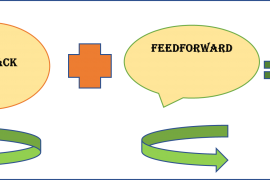One of the most difficult aspects of remote teaching has been assessment. The shift of assessment, including exams, online ensured that students could continue to study, be assessed and obtain their degrees.Online assessment has not been without its challenges. The workload associated with writing and setting exams has increased for staff. Many subjects have seen failure rates increase as have achievement gaps between student cohorts. Special consideration applications have risen markedly, due to both illness and technical problems for students. Online assessment has also seen rapidly evolving academic integrity risks, with higher number of detected cases and increased seriousness.
As reported in Staff News, to address these issues and following discussions at the Senate, Academic Board and University Executive, we are making changes to how assessments will run in 2023. The revised assessment framework described here (and available on the University intranet) is designed for the staged return of all students to campus and our desire to deliver assessment through the most appropriate mixture of face-to-face and online delivery at scale. This year, we will also commence the foundational initiatives in the Teaching and Learning Strategy 2023-25 of transforming assessment and feedback.
Changes to examinations and in-semester tests
In 2023, all examinations and in-semester tests will be invigilated either in-person or through proctoring.
To manage the return to campus teaching and integrity risks, the typology developed during the pandemic is being adapted with the removal of the nomenclature Type A-E. Most exams and in-semester tests will be “Supervised” – either in-person and on-campus or using in-person online proctoring. Those held on-campus will mostly be “pen and paper”. The remainder will be “Monitored” in which the student’s assessment session is recorded with AI proctoring followed by a full review by a person. Monitored exams and tests are only available where approved by the Associate Dean (Education).
The table below summarises possible mappings from the 2022 types to the new ones.
| Old type | Option 1 | Option 2 |
|---|---|---|
| Types A, B and C | Supervised exam/test:
|
Monitored exam/test;
|
| Type D | Supervised exam/test:
|
Submitted work (Assignment) |
| Type E | Submitted work (Assignment) |
We will also be piloting a very limited number of exams and tests in which students complete their exam or test on their own computer but with on-campus supervision. If successful, these “Bring Your Own Laptop” (BYOL) assessments may be extended in semester 2.
Changes to assessment categories and types
Assessments are grouped into 6 categories with these further divided into assessment types, with coordinators selecting these for each assessment in Sydney Curriculum. The purpose of this is to provide students with consistent information on their unit outlines about assessment when selecting and taking units. This also flows to the teams who support students including Inclusion and Disability Services (for assessment adjustments in academic plans) and Student Administrative Services (for special consideration and arrangements). Standard requests for special consideration and arrangements are processed using a decisions matrix (Schedule 3 in the Assessment Procedures). As the categorisation and assessment type chosen therefore affects the adjustments and special consideration (including simple extension) decisions that are made, it is vital that the choices reflect the intentions of the coordinator. With the trial of automated simple extensions for individual assignments in semester 2 2022, this became even more important. The following changes to the assessment categories and types are designed to simplify the process for coordinators:
- The types of “Final exam” and “In-semester test” have been altered to reflect the changes outlined above.
- The old category of “In-class assessment” has been replaced with “In-class, small and continuous assessment”. The assessment category is not displayed to students in the unit outline and is used to aid coordinators in selecting the intended assessment type.
- The need to indicate whether an assessment is for individuals or group work has been removed. Instead the assessment types available in the “Group work” category has been expanded and so this category should always be selected for group work. Assessments in the other categories are assumed to be for individual work.
- Due dates and times are now required for all assignments, with a default due time of 23:59 added in line with the late penalties clause (Section 7A (3) in the Assessment Procedures). This is designed to remove issues with the application of simple extensions. Assignments which have multiple parts (such as a draft and final version) should be set up as separate assessments or re-classified as a different type. Those that are completed in a number of tutorials over a week should be allocated to the appropriate type in the “In-class, small and continuous assessment” category.
- Because they were used by only a handful of units, “Optional assignment” and “Optional small test” have been removed as assessment types.
The full set of assessment categories and types is available. The number of assessments by category and type for 2022 is also available.
Publication of unit outlines
To assist coordinators and faculties/schools with planning and given uncertainties in the number of students who will be offshore, the deadline for publishing unit outlines in semester 1 has been moved from 6th February to 13th February. Outlines should still be approved in Sydney Curriculum to assist the planning process by the original deadline. A notice will be added to all unit outlines to inform students that the final form of examinations and in-semester tests should be considered as “draft” until 27th February (i.e. the beginning of week 2). Changes to unit outlines before 27th February will not be considered late.
Tell me more!
- Assessment and Feedback Framework 2023
- Meeting the challenges of assessment and integrity 2023
- Sydney Curriculum System Resources (including guidance on how to get help for unit coordinators)
- Exam Process guide
- Mapping of old assessment types to 2023 assessment framework
- Assessment Procedures
- How much assessment is enough? Includes an analysis of all assessments at Sydney and the load for staff and students.






1 Comment